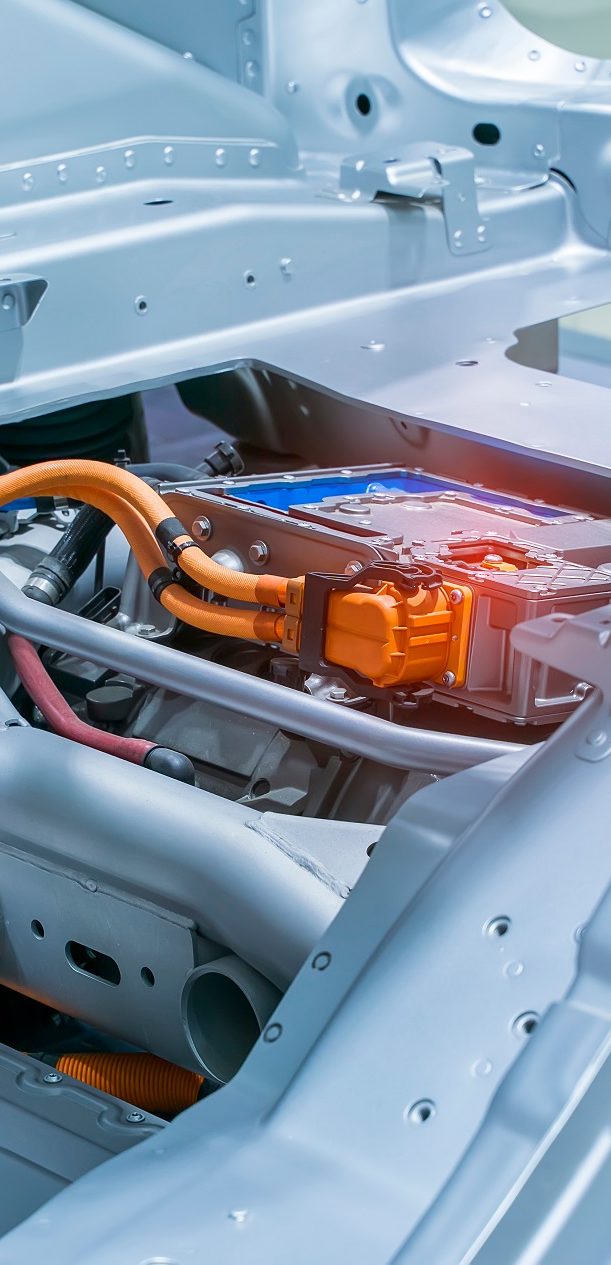Work Package 1:
Experimental & Digital Parameterisation
The challenge:
Standardisation in temperature range, accuracy, and speed. Aging and interface parameterisation for SEI models and formation processes. Identification of different aging mechanisms using non-destructive methods. Novel cell chemistries.
The research:
Develop parameterisation methods and techniques for next generation models. Focus upon ageing and interface formation and characterisation. Integration of atomistic models, experimental design and standardisation, and novel sensing methods. Coupling large-scale atomistic models from ONETEP with PyBaMM/PRISM.
- Novel cell chemistry parameterisation and phase change materials will require new techniques and data analysis methods.
- SEI formation and characterisation (linked to the Degradation project), parameterisation of interfaces combining simulations with ONETEP and PyBaMM. Atomistic, experimental and continuum model.
- New sensor and sensing methods for parameterisation and ageing monitoring (Optical, reference, thermal, stress-strain, chemical).
- Large data set ageing studies, including WMG dataset, validation testing and data driven models.
Group Leaders:
WP1 is co-led by Emma Kendrick (Birmingham) and Chris-Kriton Skylaris (Southampton), and supported by Greg Offer (Imperial), James Marco (WMG), and Charles Monroe (Oxford).
Work Package 2:
Continuum Design for Real Problems
The challenge:
Incorporating the full set of physics (thermal, electrical, chemical, etc.) and degradation mechanisms into whole cell level models, to develop tools for designing cells with optimum lifetime and performance.
The research:
Our whole cell modelling tools will be extended to incorporate more of the necessary physics, such as mechanical and thermal effects, as well as a wide range of known degradation mechanisms. The models will be adapted to simulate a range of battery formats and chemistries and methods for making them run faster will continue to be explored.
WP2 will also work with WP3 to develop the cell models into reduced order models that can be used for battery management.
Group Leaders:
WP2 is co-led by Monica Marinescu (ICL) and Charles Monroe (Oxford), and supported by Giles Richardson (Southampton), S. Jon Chapman (Oxford), Colin Please (Oxford), Jamie Foster (Portsmouth) and Ferran Brosa Planella (Warwick)
Work Package 3:
Control & Estimation Methods
The challenge:
The battery industry requires specific control and estimation algorithms for accurate and consistent prediction of battery failure and end of life. These are needed to develop lab and field based diagnostic tools for estimating state of health and available power, as well as advanced control strategies for extending battery life within applications. All of these are required to predict performance in a wide and diverse range of use cases.
The research:
The work on WP3 is focussed on developing advanced algorithms to operate battery packs. The research aims to address important application-oriented UK industrial needs, including novel multiphysics continuum modelling frameworks at cell and pack level, and new reduced order modelling and parameterisation approaches. The project consortium has strong relationships with many companies from start-ups to international organisations, including Brill Power, Dukosi, Breathe, Delta Motorsport, Aston Martin, Williams, JLR, Shell and Siemens.
Group Leaders:
WP3 is co-led by David Howey (Oxford) and Dhammika Widanalage (Warwick) and supported by Monica Marinescu (ICL) and Alastair Hales (Bristol).


